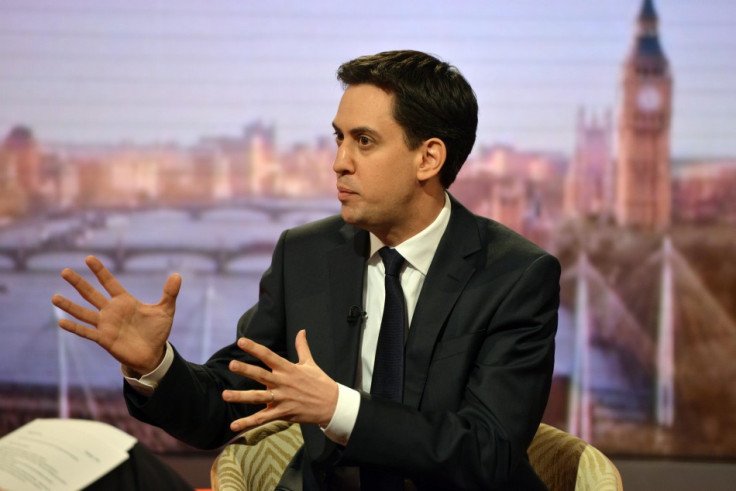Miliband's Energy Freeze Pledge: Experts Turn up the Heat on Labour Leader

Energy analysts have reacted sceptically to Ed Miliband's promise to freeze energy prices for two years if he wins the general elections in 2015.
The Labour leader made headlines in his conference speech in Brighton where he put energy prices at the centre of his electoral agenda.
Such a bold political gambit has raised Miliband's profile as the usually cautious and calculating politician has gone from playing chess to poker in the course of one day.
Miliband received much applause in the warm surroundings of a Labour audience but market analysts contacted by IBTimes UK have already started to turn up the heat on his price-fixing plan.
Miliband in Wonderland?
Share prices did not show any reaction on the day to the plan.
Joe Rundle, head of trading at broker ETX Capital, said that Miliband was attempting to score easy political points and described the idea of fixing energy prices as crazy.
"Actually implementing this would be impossible as it's a hugely global market in energy and wholesale prices are dictated by world events outside the UK. Trying to control them [with] government intervention would stop all investment in the network - and the network needs investing," he told IBTimes UK.
Lack of Investment and Potential Blackouts
Malcolm Graham-Wood of VSA Capital reinforced Rundle's point about the relationship between the UK's need for energy investment, price-fixing and the danger of distortion in energy markets through outside interference.
"The only way to keep prices down is to take your costs out - your power stations or investment or whatever you buy. You have to buy less product and therefore there will be more likelihood of power cuts which we are expecting in two or three years time."
Miliband's plan to start freezing prices in 2015 did not "add up", according to Graham-Wood. "It could take away the investment in any underlying" UK energy system, which is already under strain, he said.
A New Regulator?
Miliband's suggestion that he would break up the UK's largest energy producers and that he would create a new energy regulator to replace Ofgem was met with caution by Graham-Wood.
"I have been a critic of the some of the lack of teeth within Ofgem but to say that they will scrap the thing and start all over again with something that has more teeth would be lovely but it does not work like that. Ofgem is as good as it gets under the circumstances," he continued.
Consumers versus Producers
Miliband's approach was described as "positive for consumers" by George Buckley, chief UK economist at Deutsche Bank.
He said that over the past 15 years the rise in UK energy bills has been around about 6% per year.
Spending on UK energy accounts for 4.6% of the consumer price index, he noted. What Miliband's price cap on energy could do is remove energy's contribution to inflation.
Price controls could knock 0.3% off inflation, which could bring down the rate. The Bank of England would then be less likely to set interest rates at a high level to arrest inflation, according to Buckley.
This, he said, would help the British economy and real wages as there would be less of a squeeze on living standards.
Households would also welcome lower energy prices and that could help Miliband in the 2015 election, he added.
Warnings
He stressed, however, that Labour had to be careful as underlying wholesale energy prices were hard to predict.
Oil prices, for instance, are notoriously volatile and a rise in global prices might force up any fixed prices set by a Labour government from 2015 onwards.
Still, the immediate effect of Miliband's policy on inflation in the 2015-17 period would be noticeable, according to Buckley.
"On the face of it, it would reduce inflation by about 0.3% relative to what it would have been if we'd seen average movements in electricity prices."
READ:
Ed Miliband Delivered Powerful Performance - But Will It Be Enough?
© Copyright IBTimes 2025. All rights reserved.






















